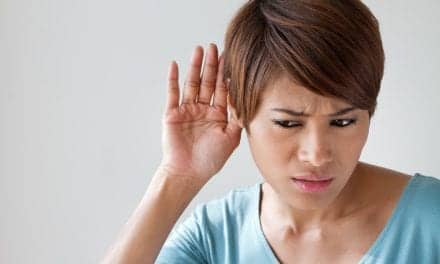Reports of symptoms such as tinnitus and hearing loss during the coronavirus pandemic could in part have a psychosocial origin rather than being directly linked to COVID-19 or the SARS-CoV2 virus, according to an article published on the University of Manchester website.
The University of Manchester and the National Institute for Health Research (NIHR) Manchester Biomedical Research Centre (BRC) study, published in Frontiers of Public Health, shows that symptoms – which by definition are not measurable – are a fertile ground for misinterpretation.
The study was supported by Anglia Ruskin University. Funding was received from Manchester BRC, the Royal National Institute for Deaf People (RNID), the British Tinnitus Association, and Neuromod Devices Ltd.
Reports of associations between COVID-19 and auditory symptoms such as hearing difficulty and tinnitus have been widely discussed in the media and academia. However, most studies have relied on self-reporting and lacked baseline information from before the pandemic. That makes it difficult to know whether symptoms occurred because the COVID-19 virus affected the ear itself, or whether they occurred because of psychosocial factors like living through a pandemic, fears about what the virus might do, or recall bias.
In a YouGov poll in 2019 of over 10,000 people, Professor Chris Armitage, Chair in Health Psychology at the University of Manchester, and Manchester BRC Hearing Health, Optimizing Outcomes Program Lead, asked, among other things, whether people had hearing difficulty and/or tinnitus.
In August 2021 the current study team commissioned YouGov to contact the same people about symptoms they had experienced during the pandemic and 6,881 responded.
The second survey asked about the onset and change in three types of symptoms:
- Type one: loss of smell, memory/concentration issues, persistent fatigue which have known association with COVID-19.
- Type two: auditory symptoms (hearing difficulty and tinnitus) which have an indeterminate association with COVID-19.
- Type three: toothache, a red herring with no established association with COVID-19.
Although there were twice as many reports of new hearing difficulties and tinnitus in people with confirmed and suspected COVID-19,compared to people who hadn’t had COVID-19, they found:
- The onset of new auditory symptoms coincided with COVID-19 in only a third of the people reporting the symptoms; a third didn’t know when their symptoms began; and a third said their symptoms began before the pandemic, even though all had said they didn’t have auditory symptoms in March 2019.
- More than 60% of people with confirmed or suspected COVID-19 said that their toothache had also been affected by COVID-19 despite there being no evidence of an association.
- As expected, Type one symptoms were reported most commonly by the people with confirmed COVID-19. But Type two and Type three symptoms were reported most commonly by the people who suspected they had COVID-19.
The study also asked about challenges experienced during the pandemic, such as feeling lonely and anxious, lack of exercise, lack of space at home, and caring for others. They looked at the number of challenges reported relative to the number of symptoms experienced during the pandemic and found the higher the number of challenges, the more symptoms were reported.
Dr Gabrielle Saunders from The University of Manchester, who manages Manchester BRC’s Hearing Device Centre, was lead author on the study. She said: “Although there were more reports of auditory symptoms in people with confirmed or suspected COVID-19, our study provides evidence that psychosocial factors influenced what our respondents felt.
“We also found that respondents were inconsistent with their reporting of hearing symptoms over time. We think this is in part because their answers were affected by the context in which the question was asked. Even if the symptoms arose due to psychosocial factors, they are still real to the person experiencing them and so need to be managed – but using different therapeutic strategies than if they were directly caused by the virus. That is why we need to take great care in attributing any symptom to the effect of the virus, especially if we lack baseline data.
“We feel that studies which include control groups and use audiometric measures (hearing tests) in addition to self-reporting, to investigate change in auditory symptoms relative to pre-COVID-19, are urgently needed.”
Original Paper: Saunders GH, Beukes E, Uus K, Armitage CJ, Kelly J, Munro KJ. Shedding light on SARS-CoV-2, COVID-19, COVID-19 vaccination, and auditory symptoms: Causality or spurious conjunction? Frontiers in Public Health. 2022;10(837513):1-9.
Source: University of Manchester, Frontiers in Public Health





